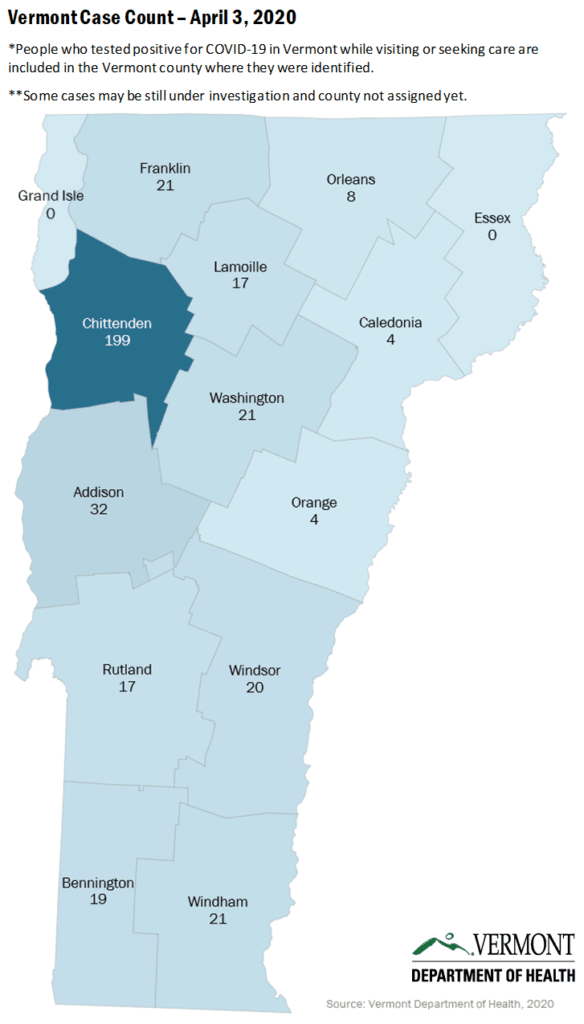On Friday, April 3, Health Commissioner Mark Levine, MD, recommended that Vermonters wear cloth facial masks, or coverings, if they need to leave their homes for essential purposes. This advice is based on new data about how COVID-19 can spread before a person has any symptoms.
Because people may have COVID-19 but no symptoms, wearing a face mask may help keep people from spreading the virus. Face coverings are not a substitute for physical distancing and other prevention measures, Levine emphasized.
It is important that medical-grade masks be reserved for our health care workers and first responders, Levine and Governor Scott said multiple times during Friday’s press conference.
Dr. Levine stressed that the most effective way to slow the virus’s spread is to continue to follow the Governor’s “Stay Home, Stay Safe Order,” respect social distancing, and be vigilant in regularly washing hands and not touching your face. “The sacrifices Vermonters are making is beginning to show promising results in slowing the spread, but we must keep up the good work for quite a bit longer to keep us all healthy and safe in the future,” he said.
Medical surge preparations
On April 2, Gov. Phil Scott announced additional medical surge locations to prepare for a surge of COVID-19 patients and the need for additional hospital and medical capacity. In partnership with the Vermont National Guard, the State is creating two additional high capacity care sites for surge: one in Essex Junction at the Champlain Valley Exposition, which will provide 400 beds staffed primarily by Vermont National Guard personnel; and another in Rutland County, supported by the Rutland Regional Medical Center, which will provide 150 beds.
How to enjoy the outdoors safely
- Stay close to home.
- Find areas close you can walk or bike to.
- If you must drive, please limit the distance from home to 10 miles, and only drive with members of your household.
- Practice social distancing while outside. You lower your risk when you stay at least 6 feet apart from others, the CDC recommends. This includes having your dog on a leash and close to you — they are part of the family, after all!
- Be cautious and choosing low-risk activities to avoid injury. This will help lower the burden on our hospitals and health care system.
- Respect signs for closed areas, trails and land. Check www.Trailfinder.info to see if your trail is currently open before you visit.
For more information, visit the Vermont Department of Forests, Parks and Recreation at https://fpr.vermont.gov/recreation/outdoor-recreation-and-covid-19







